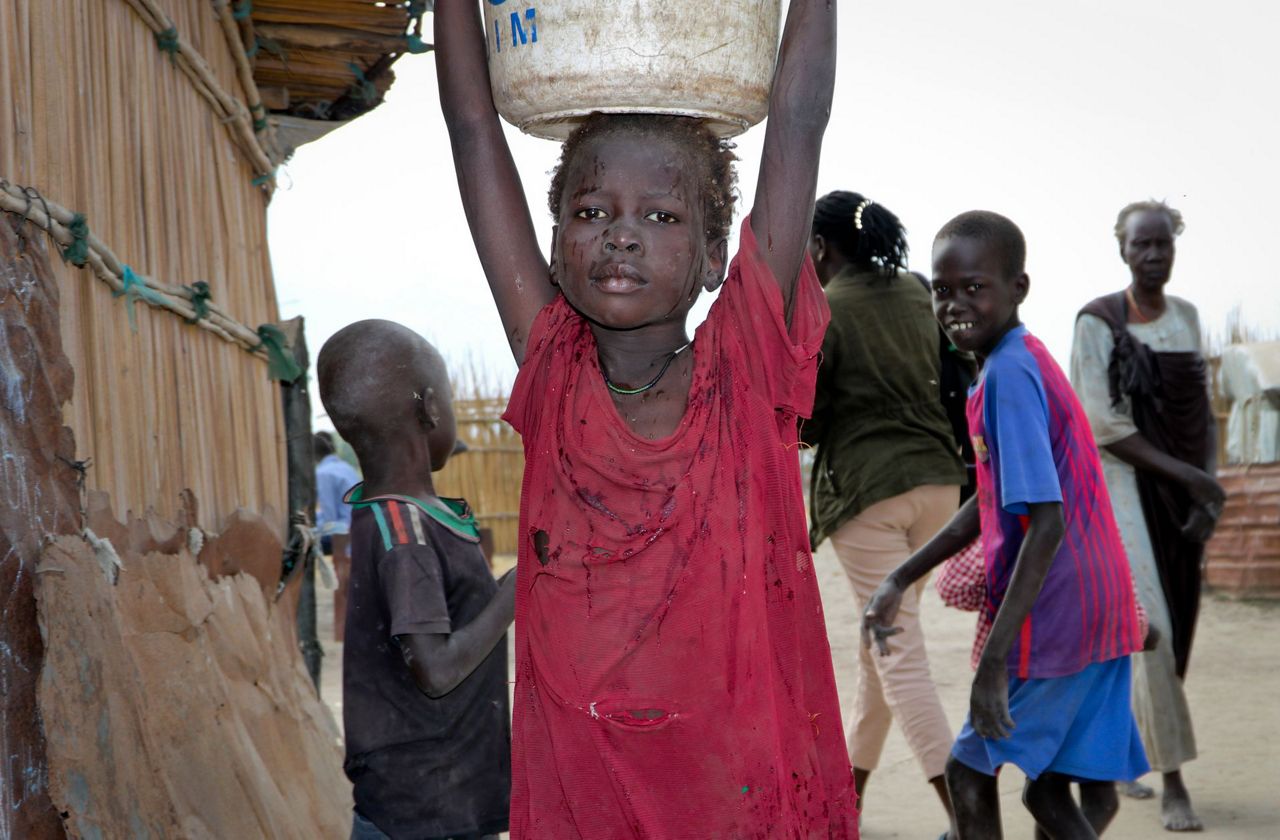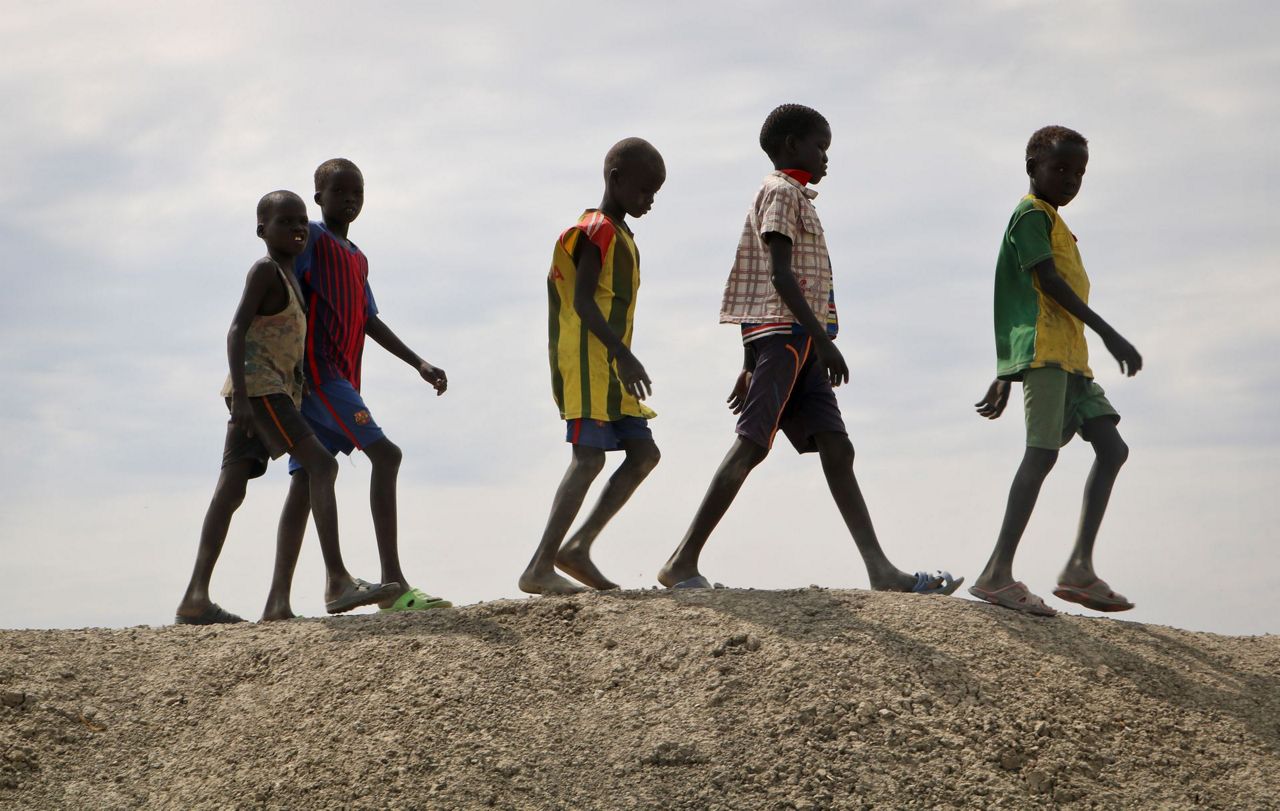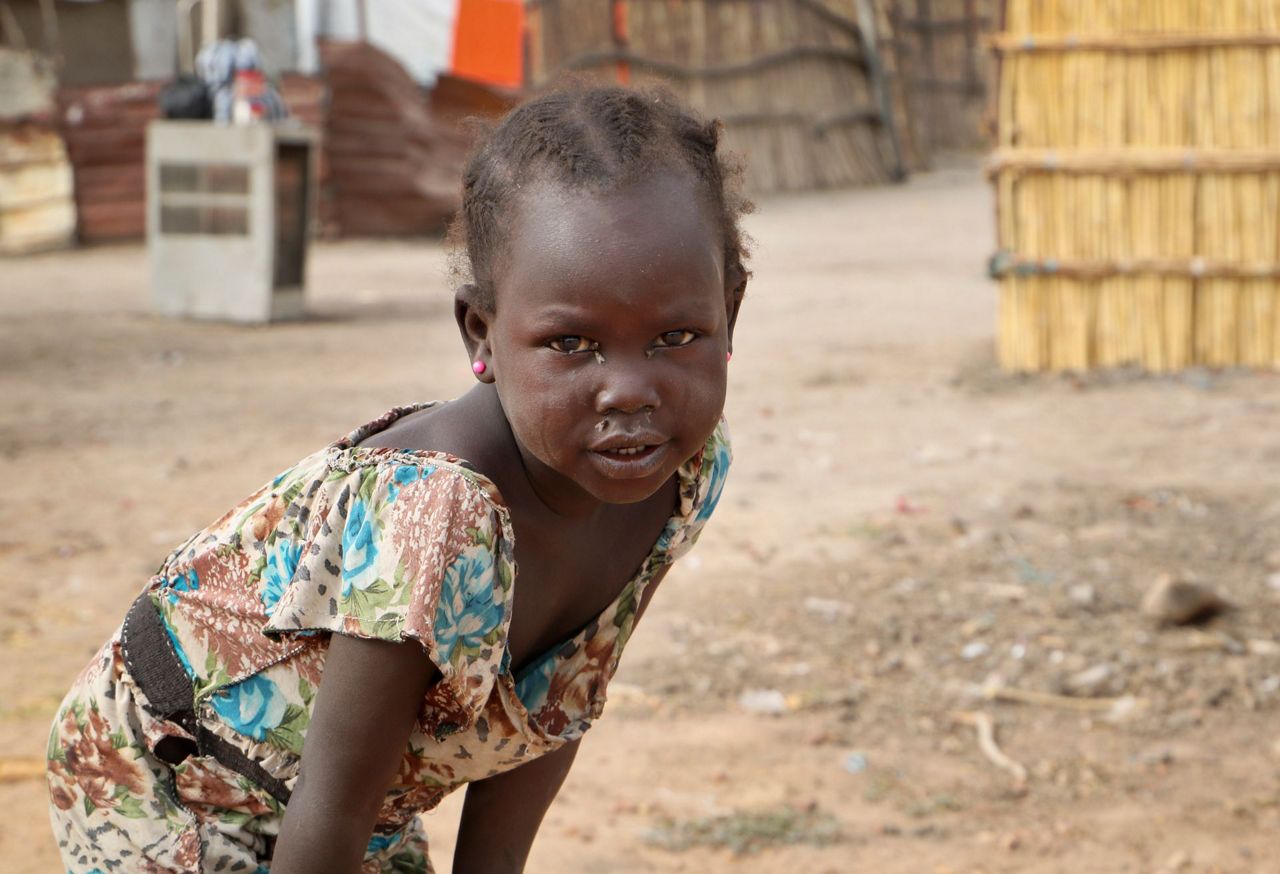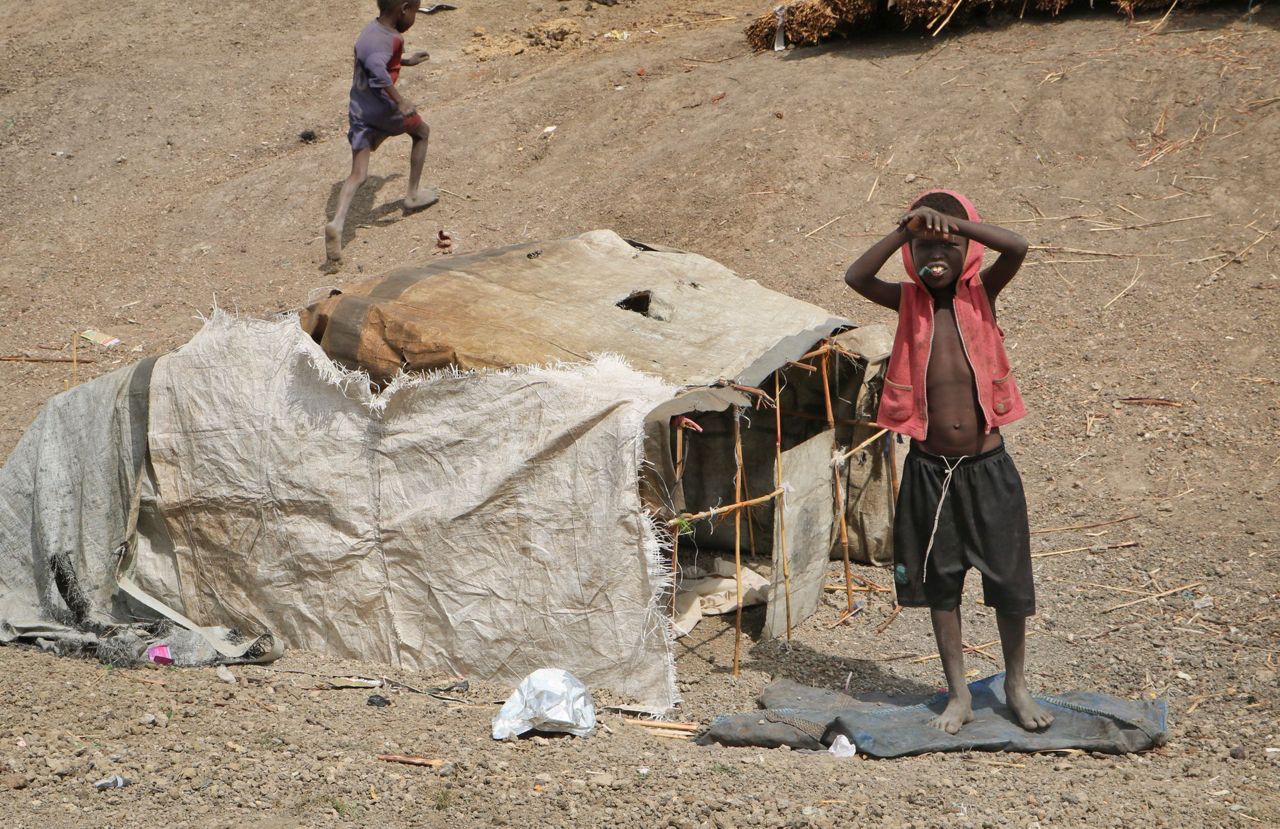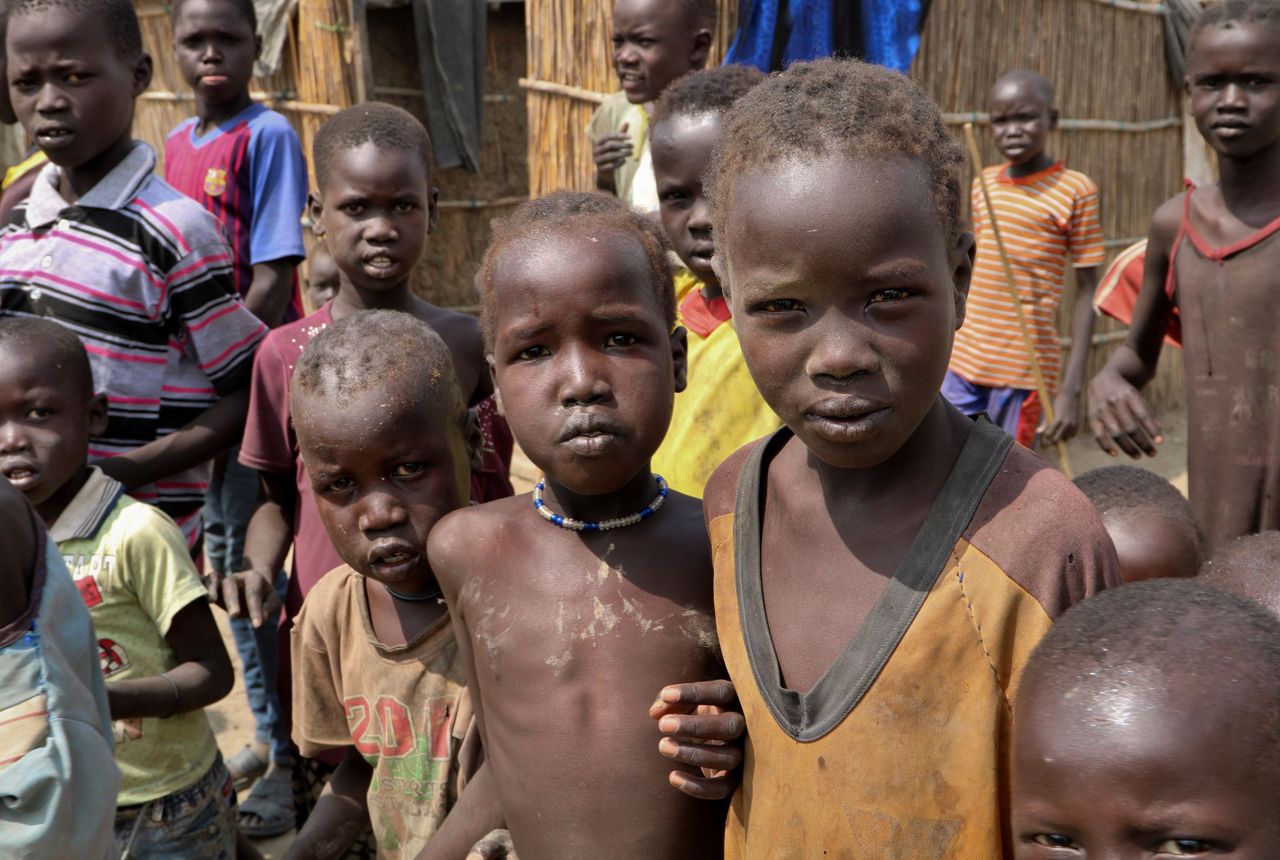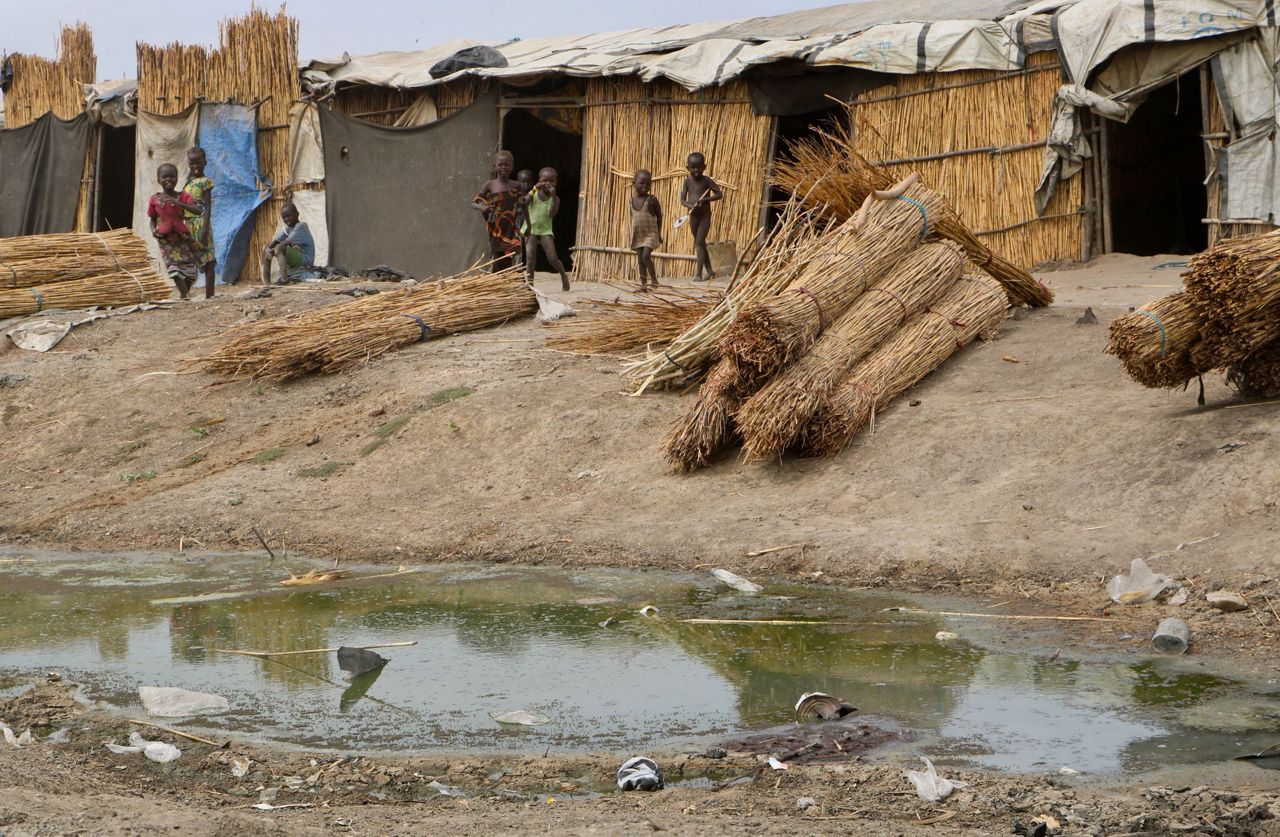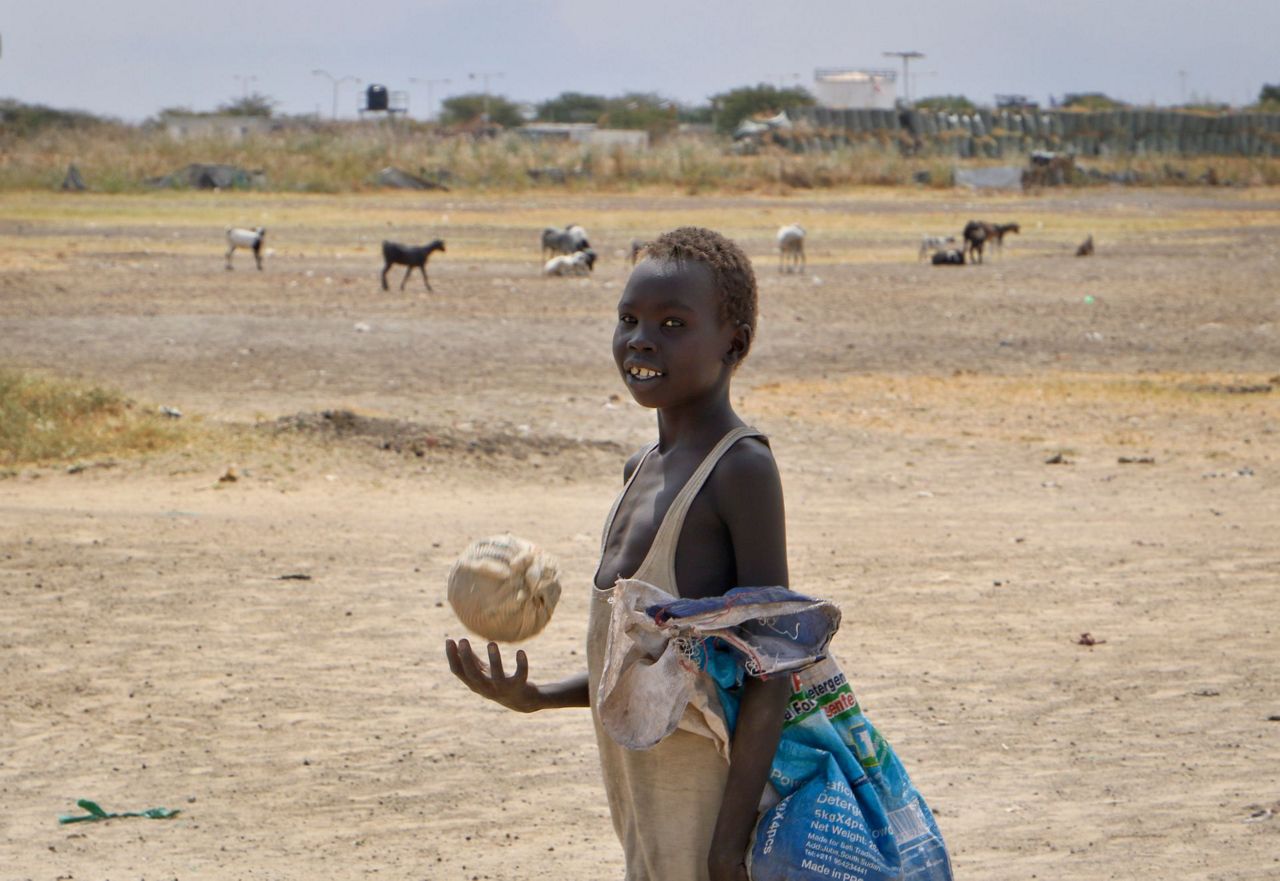BENTIU, South Sudan (AP) — For the first time since fleeing his home when civil war broke out in South Sudan five years ago, Raan Bona is daring to plan for the future.
Seated at a restaurant in Bentiu town, the 29-year-old teacher said life has started to change "with peace." He is opening a printing shop with the hope it will make enough money for him to leave a United Nations site where, like hundreds of thousands of others across the country, he has been sheltering for years.
Just months ago, planning ahead in South Sudan seemed impossible. Now, after warring sides signed a new peace deal in September that the government vows will hold, some are rebuilding their lives.
Saturday marks the fifth anniversary of the beginning of the civil war that has killed nearly 400,000 people. Armed opposition leader Riek Machar noted the grim anniversaries of the past and sounded a note of hope: "This year I can announce to the people of South Sudan that peace is not just on the horizon, but it is here."
Machar pointed to the crowd in October that celebrated the peace deal and greeted his return, said to be one of the capital's largest gatherings since independence in 2011.
Three months into the fragile deal, others said the tide is slowly turning. "If someone had asked me six months ago ... I don't think we would have got here," the chief of the U.N. mission in South Sudan, David Shearer, told reporters in Juba on Tuesday.
On a recent visit to Bentiu town, one of many left mostly desolate by fighting, The Associated Press spoke with several locals who pointed to signs of progress. Military checkpoints once used to harass civilians have been removed. Opposition fighters normally confined to the bush have been flowing in and out, visiting families in the U.N. protected site that shelters more than 114,000 people.
And now Bentiu's opposition governor, who fled amid the fighting in 2014, is expected to return for good.
"It'll show them that there's peace in South Sudan," said Angelo Gatwick Galuak, who is coordinating the return celebration scheduled for Thursday.
He believes peace will prevail in 2019, pointing to the Christmas party planned in the camp at midnight this year as opposed to past celebrations in mid-afternoon during safer daylight hours.
Some South Sudan observers who have watched previous peace deals collapse remain deeply skeptical, however.
"There is little evidence that optimism is warranted," said Payton Knopf, adviser at the U.S. Institute of Peace. There is little sign the dire humanitarian situation is abating and substantial work in implementing this peace deal remains, he said.
The five years of fighting crippled the young nation, which saw just two years of peace after winning independence from Sudan.
Millions have been displaced. More than five million people are expected to face severe food insecurity as 2019 begins, according to the government and the U.N. The U.N. children's agency says 15,000 children have been separated from their families or are missing. Fighting continues in some areas.
Several people expressed doubt that the peace deal will hold without the support of the international community. The U.S., Britain and Norway, the so-called Troika that ushered the country into independence, did not endorse the deal, saying in September that they remain concerned about the parties' level of commitment.
"Them not signing is the highest form of hypocrisy. You can't say you're here to help and then not sign," said Jacob Chol, senior political analyst and professor at the University of Juba.
While most South Sudanese are trying to be cautiously optimistic about the future, distrust remains.
Memories are fresh of the failed 2015 peace deal, which saw Machar flee his new post as vice president under a fragile power-sharing arrangement with President Salva Kiir as fighting broke out again.
Now this new peace deal has Machar returning as Kiir's deputy.
Across South Sudan, about 200,000 people in Bentiu and elsewhere still shelter in squalid conditions in six U.N. protected camps, still too scared to return to their homes.
Walking along the gravel path in Bentiu's U.N. site, two boys playfully jostle each other, struggling in broken English to convey their feelings about the future.
"The peace is here but the peace is still not well," 11-year-old Shan Gatmai said.
Isaac Liech, 13, motioned beyond the fence encircling the camp. He pressed a finger to his forehead and cocked his thumb, creating a makeshift gun.
"The farther you go outside, you'll be killed," he said.
___
Follow Africa news at https://twitter.com/AP_Africa
Copyright 2018 The Associated Press. All rights reserved. This material may not be published, broadcast, rewritten or redistributed.



